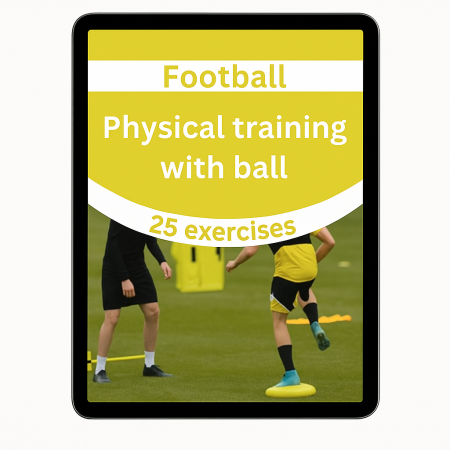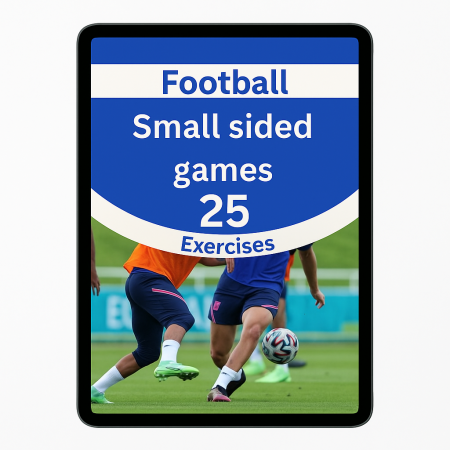Football training is the coach's basic pedagogical act, it is his means of intervention. During the football training lesson, he must convey the message he wants to instil in the players, certain notions, certain values.Regardless of the age of the players a football training - DO NOT IMPROVE.
The following aspects must be taken into account in football training:
1. Before a football training session - Preparing the training
- defining objectives;
- consulting documents;
- preparation in writing;
- preparing exercises;
- preparing materials.
After the objectives have been defined, the documents must be consulted and the training prepared in writing. All the means (exercises) to be used in the training should be written down on paper or even in a specific diary.
A football training is not improvised, it must first be thought out, then written down on paper, in the preparation stage of the training we must take into account the following:
- what surface area we have available for training;
- what equipment we have available: goalposts, training fences, goal posts, mobile goals;
- number of footballs in relation to the number of players.
Another important aspect to take into account for effective football training is the number of players we will have at our disposal.
Of course we have to take into account what has been done during previous training sessions. We must also take into account the last match and the number of weekly training sessions we have available.
2. During a football training session - Conducting training
- presentation of the training lesson;
- explaining the objectives;
- creating or maintaining motivation;
- clarity in interventions;
- instil dynamism.
During football training, the coach must follow some simple pedagogical principles:
- first at the training site, this will allow you to prepare the materials;
- set an example by being correct and appropriate;
- demand discipline and correct dress;
- speak loudly and intelligibly;
- place yourself well in relation to the players;
- demonstrate if necessary.
First of all write it down on the tactical board in the locker room:
- the theme of the training;
- the composition of the teams for the exercises and the game;
- hand out the vests.
The presentation should be short, especially if it is cold, no long speeches, short and concrete sentences.
Refresh your training
No matter how good the preparations, no matter how good the material conditions, the exercises will not achieve their objective if the training is not lived to the full:
- at a pace close to match pace;
- with appropriate gestures, which requires advice and correction from the coach.
Success needs to be capitalised on and confidence given so that the player dares to take risks and gets a taste for risk.
The same for the game, the game is part of the training, it is not a "dessert" nor a reward, it is one of the strengths of the training as this part is closest to the match.
3. After a football training - Evaluate the training
- lesson conclusions;
- note the team's participation in the proposed work;
- assess signs of fitness, fatigue;
- make a written evaluation.
- on a physiological level it allows the body to erase some of the fatigue of training;
- on a psychological level, it reduces the tension and excitement of the game.
The coach should draw conclusions from the training lesson by emphasising the positive points that emerged during training, drawing attention to the progress that remains to be made and preparing for the next training session or match.




